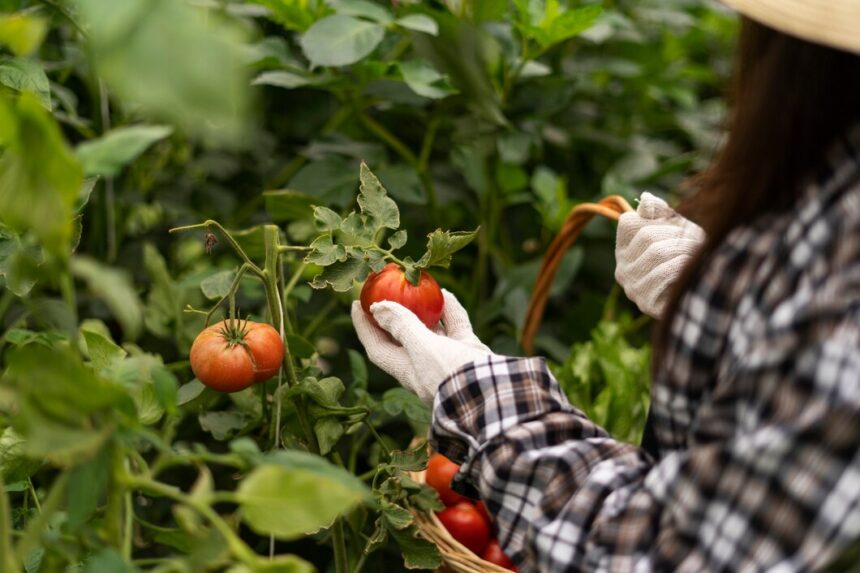Organic farming techniques offer numerous benefits for South African farmers, including improved soil health, biodiversity conservation, and reduced reliance on synthetic inputs. Here are ten ways farmers in South Africa can embrace organic farming practices:
- Crop Rotation: Implementing crop rotation helps break pest and disease cycles, improve soil fertility, and reduce the need for chemical fertilizers and pesticides. Rotating crops such as legumes, grains, and vegetables helps replenish soil nutrients and maintain soil structure.
- Companion Planting: Companion planting involves growing compatible plant species together to enhance pest control, nutrient uptake, and pollination. For example, planting marigolds alongside vegetables can deter pests, while intercropping legumes with cereals can improve nitrogen fixation and soil fertility.
- Cover Cropping: Cover cropping involves planting non-harvested crops, such as legumes or grasses, to cover and protect the soil between cash crop rotations. Cover crops help prevent soil erosion, suppress weeds, and improve soil organic matter content.
- Organic Fertilizers: Utilizing organic fertilizers, such as compost, manure, and green manure, provides essential nutrients to crops while improving soil structure and microbial activity. Organic fertilizers release nutrients slowly, reducing the risk of nutrient leaching and runoff.
- Biological Pest Control: Implementing biological pest control methods, such as introducing beneficial insects, predators, and parasites, helps manage pest populations without the use of chemical pesticides. Encouraging natural predators, such as ladybugs and lacewings, can control aphids and other crop pests effectively.
- Mulching: Mulching involves covering the soil surface with organic materials, such as straw, hay, or compost, to conserve soil moisture, suppress weeds, and regulate soil temperature. Mulching also adds organic matter to the soil as it decomposes, improving soil health and fertility.
- Integrated Pest Management (IPM): Integrated Pest Management combines multiple pest control strategies, including cultural, biological, and mechanical methods, to minimize pest damage while reducing reliance on chemical pesticides. IPM emphasizes monitoring, prevention, and targeted intervention to maintain pest populations below economic thresholds.
- Water Conservation: Implementing water conservation practices, such as drip irrigation, rainwater harvesting, and soil moisture monitoring, helps optimize water use efficiency on organic farms. Conserving water resources not only reduces environmental impact but also enhances crop resilience to drought and climate variability.
- Agroforestry: Integrating trees and shrubs into agricultural landscapes through agroforestry practices provides multiple benefits, including soil erosion control, biodiversity enhancement, and carbon sequestration. Agroforestry systems, such as alley cropping and windbreaks, improve microclimate conditions and create habitat for beneficial wildlife.
- Certification and Market Access: Obtaining organic certification from recognized certifying bodies allows farmers to access premium markets for organic products both domestically and internationally. Adhering to organic farming standards ensures compliance with organic regulations and consumer preferences for sustainably produced food.
By embracing these organic farming techniques, South African farmers can enhance the sustainability, resilience, and profitability of their agricultural operations while promoting environmental stewardship and biodiversity conservation. Organic farming offers a holistic approach to food production that prioritizes soil health, ecosystem integrity, and human well-being, contributing to a more sustainable future for agriculture in South Africa.
Join 'Farmers Mag' WhatsApp Channel
Get the latest Farming news and tips delivered straight to your WhatsApp
CLICK HERE TO JOIN






